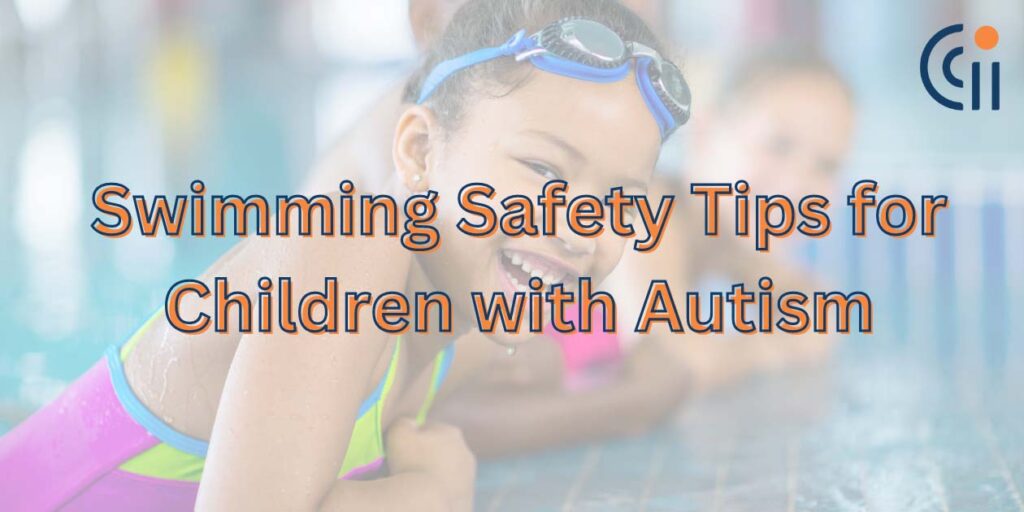Many children enjoy swimming, and it is a fun and healthy activity. However, for children with autism, it can come with added risks. Water safety is crucial, especially since children with autism are more prone to wandering and may not recognize the dangers of water. With proper precautions, you can help keep your child safe while they enjoy swimming.
Here are some essential swimming safety tips for children with autism.
Start with Swim Lessons for Children with Autism
Before heading to the pool, children with autism should learn basic swimming skills. Enrolling your child in swim lessons tailored to their needs is a great first step. Many instructors specialize in teaching children with autism, using patience and techniques that work best for their learning style.
These lessons can help children become more comfortable in the water, learn to float, and understand how to swim to safety. Be sure to inform the instructor of any sensory sensitivities your child might have so they can adjust the lessons accordingly.
Create a Safe Swimming Environment
Choosing the right location for swimming is key to ensuring safety for your child. Public pools can be overwhelming for children with autism due to the noise and crowds. Opt for quieter locations, such as a private pool, a friend’s home, or a quieter time at a community pool.
If swimming at home, always secure your pool with fences and alarms. Installing a pool alarm can alert you if someone enters the water unexpectedly. Also, make sure that a responsible adult is always supervising closely.
Teach Water Boundaries
One of the most effective swimming safety tips for children with autism is teaching them the importance of water boundaries. It’s essential that they understand when and where it is safe to swim. Practice walking with your child to the edge of the water and explaining that they should only enter the pool with an adult present.
Use visual aids, like signs, or create rules about pool entry to help reinforce this concept. Repetition is key in helping your child understand that they must never approach the water alone.
Invest in Proper Swimming Gear
Having the right gear can make swimming safer and more enjoyable for children with autism. Consider using life jackets, especially for children who are still learning to swim or who have difficulties with motor coordination.
Additionally, some children with autism may have sensory sensitivities to water. In these cases, swim caps, goggles, or earplugs can help them feel more comfortable. Make sure that the swim gear fits properly and is something your child is willing to wear consistently.
Practice Supervised Swimming
No matter how confident your child becomes in the water, always ensure they swim with supervision. Accidents can happen quickly, even in shallow water, and close supervision is one of the best ways to prevent drowning.
Consider the buddy system if your child is swimming with other kids, ensuring there’s always someone nearby. If your child tends to wander, place extra precautions around the swimming area, such as additional fencing or alarms, to help prevent unsupervised access.
Communicate with Your Child About Swimming Safety
Another important tip is open communication. Talk to your child about swimming safety in a way they can understand. Use simple language and explain the potential dangers of water. Reinforce safety rules, like waiting for an adult and staying in shallow areas.
Role-playing can also help. Practice scenarios where your child waits for permission to enter the water or calls for help if they feel unsafe. This will help them develop awareness and the ability to act safely in real situations.
How Circle City ABA Can Help
At Circle City ABA, we understand the importance of keeping children with autism safe in all environments, including around water. While we do not offer swimming lessons, we provide personalized ABA therapy that helps children with autism build important life skills, including understanding safety rules.
Contact our admissions team to learn more about our services or to schedule a consultation. Find a location near you! We serve Arizona, Georgia, Indiana, Iowa, and Nebraska. We’re here to support your family’s needs and help your child thrive both in and out of the water.
Sources:
- Autism Speaks: https://www.autismspeaks.org/
- National Autism Association: https://nationalautismassociation.org/



